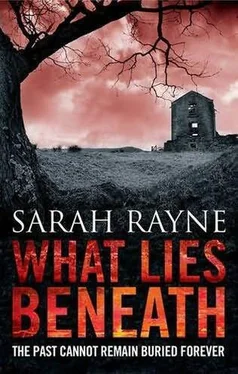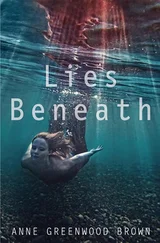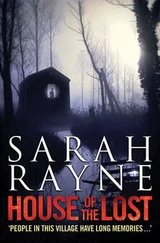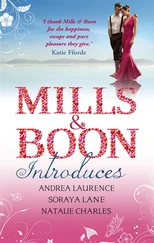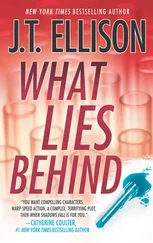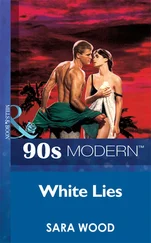Clem Poulter was there as well, telling the decontamination team please to ignore him, because his mission today was to take notes, like William Russell writing up the Charge of the Light Brigade for The Times in 1854.
One of the teenagers who had worn killer heels sprained her ankle falling down Mordwich Bank; two people were sick in the bushes from what they afterwards insisted was a rogue prawn in the baguettes but which everyone else said was overindulgence of cider, and Clem Poulter fell into a bed of nettles and had to be hauled out.
Ella had not wanted to go, but in the end she had done so because a lot of people were going and it might look odd if she were not there. But standing on the Crinoline Bridge along with a handful of neighbours, including Veronica, who was wearing a totally unsuitable outfit, she felt the past claw at her mind and for a really bad moment she was a child again, in the shadowy old church, listening to the sombre music pouring out, and hearing the agonized sobbing of the musician. But then she blinked and looked about her, and of course she was in the present-day, and the only sound she could hear was the phut-phut of machinery and the chatter of the local people. After a while she drove home, where she felt slightly better, but when Derek suggested strolling along to the Red Lion, Ella said irritably he had better go on his own because she had a headache and was going to bed early.
The air around Priors Bramley was filled with thrumming machinery for the next few days and a mist rose up from the high-pressure jets, causing romantically minded people to say the old village would reappear from out of the fog like the ghost village of Brigadoon in the old film. Less fanciful souls said that it was all a lot of fuss about nothing, and had anyone noticed how extremely low the water pressure was as a result of the Water Board allowing the decontamination team to connect their equipment to the mains?
Two days after the start of the decontamination, Ella went to meet her granddaughter Amy at Bramley railway station. Going down Market Street, driving slowly because of all the untidily parked cars and unwary pedestrians, she saw Veronica in absorbed discussion with a strange man. He could surely not be the one Veronica had hinted and smirked about, but if he was, he was certainly not her usual fare. In fact, Ella did not think he would be anybody’s fare. He might be any age, from twenty-eight to forty-eight, he was wearing an aged herringbone coat that trailed on the ground, and he looked as if he should be queuing up for a hand-out at a Salvation Army hostel. She slowed down and leaned over to wave, but Veronica did not see her so Ella drove on. But pausing at the traffic lights at the end of Market Street, she glanced in the driving mirror and saw the man nod to Veronica, then go into the Red Lion as if he was familiar with the place. This was unexpected, because the Red Lion liked to think it attracted quite an élite clientele and would not be best pleased to have someone who looked like a tramp wandering in.
Parking in front of the station entrance, Ella was glad to think she had managed to veto Amy’s plan to work as a barmaid at the Red Lion for the holiday, or to volunteer to help at the Bramley Gate hostel with the children taken into care. When Ella had been in her teens the only kind of part-time jobs available had been newspaper delivery rounds or Saturday morning work in shops, neither of which her mother would allow.
But when Amy’s father, Andrew, was growing up, people thought it was useful and admirable for youngsters to take holiday jobs, and he had done what was called work experience, trying out different things for a few weeks at a time. He had finally gone into engineering, studying at a polytechnic ten miles away, catching a bus and later using a little moped, which Derek bought him. He had done well; Ella was very proud of him, although she did not really understand him. She did not really understand Amy either, or why she had decided to read such peculiar subjects as archaeology and anthropology at Durham University. In Ella’s day girls had learned shorthand and typing, or book-keeping, and gone into offices. She could not imagine the kind of job Amy would finally get, but Derek only laughed and said Amy was headed for a very interesting career, and they would be as proud of her as they were of Andrew.
Ella was proud of Amy now; it was simply that she did not understand her any more than she understood Andrew. Still, she was pleased she had talked Amy out of the Red Lion idea. She had persuaded Clem to create a little part-time job at the library, which would be much more suitable and which Amy would enjoy.
Amy Haywood, arriving in a tumble of untidily packed bags and flying hair at Bramley station, thought the next three weeks would be pretty boring. Gran would be stuck in the genteel 1950s, and Gramps would be stuck in his balance sheets by day and Gilbert and Sullivan by night. But it had been nice of them to ask her to stay for the Easter vacation, what with Mum and Dad being in Africa, where Dad was building a bridge or designing it, or something, and taking six months to do it so that Mum had gone with him.
And she would see if she could jazz up Gran’s wardrobe while she was in Bramley, which would be fun, and maybe go along to some of Gramps’s rehearsals and help slosh paint on scenery. She had intended to try working at the Red Lion for a couple of nights a week – it got quite lively there sometimes – but Gran had gone up in smoke at the idea and said they could not have their granddaughter working as a barmaid, whatever would people think?
It would be as well for dear, respectable Gran not to be told that Amy had recently been entangled with a very unsuitable person indeed or there would be a big row and boring lectures about correct behaviour and breaking the rules. It would all be devastating and Amy was devastated enough as it was, and screwing a tutor was only breaking the rules a very little bit. But Gran would be shocked to her toes and, even worse, Gramps might say he would have a word with Amy’s College, because tutors were not supposed to have – h’rrm – relationships with students. That would be utterly mortifying, because Amy had so far managed to keep everything quiet, not wanting anyone to know she had been taken in by the tutor of English, the biggest screwer-around in college. It was utterly shameful to find you had been lured into bed with velvet-voiced quotations from John Donne and Shelley. Thirty years ago he would have been called a wolf and a rat, that tutor. He was a rat, anyway. He was not even a very good English tutor, and he had probably looked up the Donne and Shelley lines in a dictionary of quotations.
Veronica had seen Ella driving through the village, but had not waved to her because of being in discussion with a very interesting new acquaintance. She had first encountered him at the Red Lion, when some neighbours had taken her there for a meal. She did not particularly like the neighbours, but she had gone because she had a rather elegant new jacket and it was a pity not to give it an airing.
The man had been at an adjoining table, eating the Red Lion’s lasagne, apparently absorbed in reading a book propped up against his wine glass. Veronica had glanced at him indifferently, vaguely thinking him rather scruffy, and wondering that the Red Lion had deigned to serve him, because they were generally quite particular. But later, going up to the bar to order some drinks for the neighbours who had brought her, she had heard the man asking for the key to his room at reception. She had instantly revised her opinion, because he had the most beautiful voice she had ever heard – pure BBC, it was – and the landlord had called him Doctor somebody – the surname had sounded vaguely foreign. And, of course, circumstances altered cases, and you heard of absent-minded professors and research people who went about looking positively tattered. Considered again, in the light of this new knowledge, whoever he was, whatever kind of doctor he was, he had the kind of face you saw in old portraits – Henry VIII and people – well, not Henry himself, of course, but those people whose heads he had chopped off. Martyrs and suchlike. Paul Schofield had played one of them in a film.
Читать дальше
